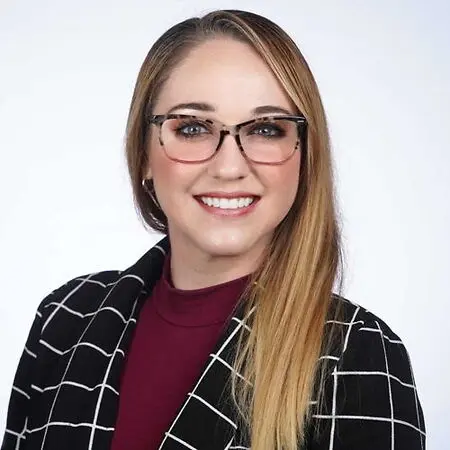Heather Noriega, MS

Heather Noriega, MS, is a pharmaceutical scientist, computational researcher, and PhD candidate in Pharmaceutical Sciences at Howard University. Her career journey began as a pharmacy technician before earning a master’s degree in pharmacology, which laid the foundation for her transition into advanced research. Today, Heather’s work focuses on computational drug discovery, molecular dynamics, and the application of AI and machine learning in drug development, with a special interest in gene therapy and HER2-positive breast cancer treatments. Her contributions have been recognized through awards such as the NIH CHITA-AIM-AHEAD grant, and she remains active in organizations including the American Chemical Society, the American Association of Pharmaceutical Sciences, and Graduate Women in Science.
In a recent interview with Influential Women Magazine, Heather shared how her research is advancing the future of pharmaceutics by shortening drug development timelines from decades to just a few years. She also discussed her aspirations to continue contributing to academia or industry, where she is actively exploring opportunities with major pharmaceutical companies such as Johnson & Johnson, Merck, and Vertex. Heather emphasized the transformative role of AI in modern drug discovery, acknowledging both the opportunities and the challenges of integrating these tools into later phases of clinical trials.
Beyond her academic and professional pursuits, Heather is committed to mentorship and community impact. She volunteers with the Girl Scouts Nation’s Capital, where she helps raise funds for underprivileged girls and inspires students through hands-on STEM outreach. Whether guiding young scientists through molecular modeling projects, sparking curiosity in children with engaging lessons about natural compounds, or encouraging students to see science as a creative pursuit, Heather embodies her grandfather’s advice: find something you love doing, and you’ll never work a day in your life.
• Applied Plotting, Charting & Data Representation in Python
• Introduction to Data Science in Python
• Bioinformatics: Introduction and Methods
• Biosafety - Group 3: Translational Scientists and Laboratory Staff
• Clinical Research Coordinator
• Good Clinical Practice (U.S. FDA Focus) - GCP for Clinical Trials with Investigational Drugs and Medical Devices (U.S. FDA Focus)
• Human Research - Group 1. BIOMEDICAL
• Biomedical Responsible Conduct of Research
• Howard University- Ph.D.
• The Ohio State University- M.S.
• The Ohio State University- B.S.
• Pima Community College- A.A.S.
• NIH AIM-AHEAD grant awardee
• GWIS
• Phi Theta Delta Honors
• AAPS
• ACS
• Girl Scouts Nation's Capital
What do you attribute your success to?
I attribute my success to the advice my grandfather once gave me: find something you love doing. That simple guidance continues to inspire my passion for helping people through science and fuels my commitment to a career in the lab. Whether I am advancing research in HER2+ breast cancer, developing AAV gene therapies, or mentoring the next generation of scientists, I carry his words with me as a reminder that meaningful work begins with genuine passion.
What’s the best career advice you’ve ever received?
The best career advice I’ve ever received is to follow what I call the Triple P system: professionalism, persistence, and passion. Professionalism ensures that I hold myself to the highest standards in both research and mentorship. Persistence keeps me moving forward through challenges in the lab and in the field. And passion fuels my drive to innovate in drug discovery and gene therapy while inspiring others to pursue science. Together, these three values have shaped not only my career path but also how I approach every opportunity.
What advice would you give to young women entering your industry?
My advice to young women entering this industry is to stay curious, be confident in your voice, and seek out mentors who will challenge and support you. Science is full of complex problems, and it’s persistence and collaboration that drive breakthroughs. Don’t be afraid to take up space in the lab or at the table, your perspective is valuable. And most importantly, let your passion guide you; when you love what you do, the challenges become stepping stones rather than roadblocks.
What are the biggest challenges or opportunities in your field right now?
One of the biggest challenges in my field is balancing the complexity of biology with the rapid pace of technology. AI and molecular modeling give us unprecedented tools to accelerate drug discovery, but ensuring accuracy, reproducibility, and clinical translation remains difficult. At the same time, this challenge is also our greatest opportunity, advances in AI, structural biology, and gene therapy are opening doors to personalized treatments for cancer and genetic diseases that were once thought untreatable. The next decade will be defined by how well we harness these innovations responsibly and collaboratively.
What values are most important to you in your work and personal life?
The values most important to me are integrity, persistence, and service. In my research, integrity ensures that my work is rigorous and reproducible. Persistence helps me push through challenges, whether in the lab or in mentoring students who are just starting their STEM journey. And service grounds me, through Girl Scouts and community outreach, I’m reminded that science is not just about discovery, but about creating opportunities and making a difference for others.